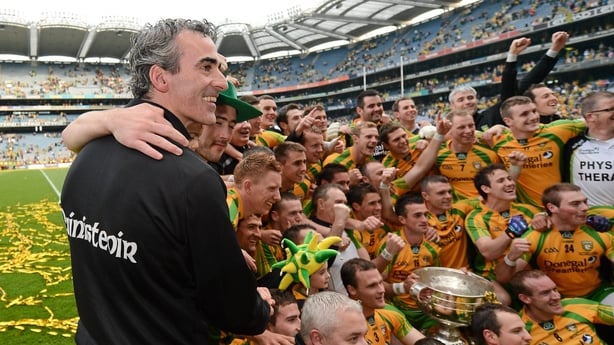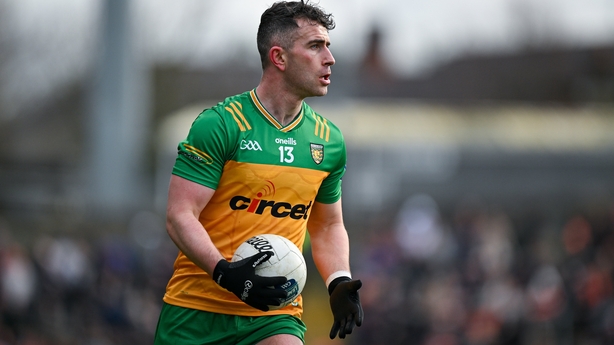Jim McGuinness is still re-adjusting to life once again as an inter-county manager, yet the modern possession-based game, as it is currently refereed, isn't exactly to his liking.
The Glenties man, a long-time county player and a substitute for the first All-Ireland title victory in 1992, presided over Donegal's rise during an unforgettable and revolutionary four-year stint in charge in the early 2010s, a period which yielded three Ulster titles and the county's second All-Ireland triumph in 2012.
Having left Gaelic games to pursue soccer coaching, his return to the Donegal hotseat raised expectations within the county that they can progress after struggling to make an impression in recent years.
Yesterday’s win over Louth sees the Tír Chonaill men top of Division 2 alongside Armagh and primed for a return to the top tier.
Seven weeks out from an Ulster reunion with Mickey Harte when they take on the provincial champions Derry in their own backyard, McGuinness feels his team have been solid, if not spectacular in amassing four wins from five.
"We have a lot to get right between now and then (20 April)," he told RTÉ Sport, "but we’re actually happy that in the process of looking at a lot of players and a lot of ideas around how we want to play, we have still managed to basically keep on winning, with the exception of the Armagh game."
After guiding Donegal to a first Ulster title in 19 years in his first season in charge in 2011, McGuinness was subsequently castigated for the team's tactics in their narrow defeat to Dublin in the semi-final, with the term 'blanket defence' entering the Gaelic football lexicon.
Despite their detractors, a year later they lifted Sam Maguire.

The stunning ambush of unbackable favourites Dublin in the 2014 All-Ireland semi-final was perhaps their peak performance under his watch, even if they fell short against Kerry in the decider.
McGuinness has returned to a game where possession is more highly coveted than ever, and many observers are of the opinion that the rules lend themselves to risk-averse tactics.
What does McGuinness make of the current state of the game?
"It is challenging," he says. "We want to play transitional football. A lot of times it is not possible. There is a lot of tactical fouling going on, a lot of people slowing the game.
"I’m not sure if the officials are up to same level in terms of what the opposition teams are looking to do.
"If the game is to become faster in that way then things like that need to be nipped the bud early on or else it continues on for the rest of the game.

"It’s difficult to progress the ball quickly, probably because of possession football. In possession football, you are pushing 13, 14, 15 players on. The counter-balance to that is that if you lose it then you are in big, big trouble, so you cannot allow a transitional moment.
"Even now when you do get the turnover, you’re probably not going to get up the field the way you want to get up the field because of that dynamic.
"Possession football is then kind of dictating dynamics.
"You either make your case to the linesman or referee and remonstrate, or you accept it."
McGuinness has welcomed the GAA's new Football Review Committee, led by former managerial rival Jim Gavin, a group tasked with developing ways to make the modern game a more attractive proposition.
"The committee will look at all these things and I think that’s great," McGuinness says.
"It’s a really strong committee. Previously I was never asked a question. Managers do need to be part of it, even though sometimes they are the problem."

